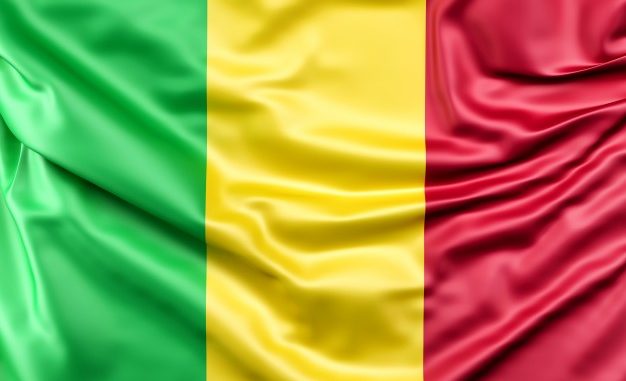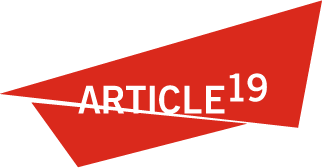
ARTICLE 19 strongly condemns the deadly repression of protesters on 10 and 11 July in Mali, which claimed the lives of 11 protesters including two minors, injured at least 140 others and resulted in the arrest of dozens of people. The crackdown was accompanied by an internet disruption, which prevented people from using social media and is a violation of the rights to access of information and freedom of expression.
“Protest is a right. People must be able to express themselves online and on the streets. But instead of using lawful means to contain any violence during the protest, the authorities cracked down on the people with brutal force. This must be investigated and those suspected to be responsible should be brought to justice,” said Fatou Senghore, Director of ARTICLE 19 Senegal and West Africa.
Following the last legislative and local elections, Mali is going through a socio-political crisis which has resulted in the creation of a coalition of religious, political and civil society leaders, the M-5 RFP (Rassemblement des Forces Patriotiques), who demand the resignation of President of Republic Ibrahim Boubakar Keita and his regime.
After peaceful demonstrations on 5 and 19 June, the M-5 RFP had called for a day of civil disobedience on Friday 10 July to reject the measures announced by the President. The leaders of the M-5 RFP urged the protesters to remain peaceful, but across the city of Bamako there was violence on 10 and 11 July. Protesters threw stones at security forces, blocked the roads and lit bonfires. They damaged some government buildings, including the National Assembly with the looting by demonstrators. They also occupied the national broadcaster ORTM which caused temporary interruption of the programs.
To contain the protest, the security forces reacted with excessive force, fired teargas and live ammunition at protestors leading to a bloody repression, arrests of five M5-RFP leaders and dozens of protesters. Two journalists were also attacked by unknown persons.
“No one should have to worry about their life when they go out on the streets to express their political views. No journalist should be abused for doing their work. Freedom of expression and access to the internet must be guaranteed at all times, including during demonstrations,” Fatou Senghore emphasized.
ARTICLE 19 strongly condemns excessive use of force and deaths of the protesters, which may amount to the unlawful killings, as well as the arrest of people without bringing them before a judge. The organization urges the government to promptly and independently investigate these allegations and immediately and unconditionally release those arrested merely for exercising their rights to freedom of expression, association and assembly, without being associated to violence. Only persons suspected of having committed a criminal offence should be arrested and brought before a judge. The government can’t arbitrarily arrest and detain people without taking them to court, as that denies them their right to challenge the lawfulness of the arrest.
“Mali has a responsibility to protect the right to life and to guarantee the rights to freedom of expression, peaceful assembly and access to information, including online. The freedom of assembly and right to protest is guaranteed by the provision 5 of the Constitution of Mali”.
The National commission on Human Rights (CNDH) was denied access to police custody to verify the information on the arrests. Camp I supervisors in Bamako also refused to make available to the CNDH the list of persons in police custody. By law, the CNDH is allowed to make regular and unauthorized visits to all places of detention.
On 13 July, the main leaders of M-5 RFP were released but according to a member of M-5 Committee, the whereabouts of one of them is still unknown and more than 30 protestors are still illegally detained. We regret that people detained have not yet had access to a lawyer and for some of them to their families.
Excessive use of force and unlawful killings
Friday 10 July 2020 was dominated by intense tensions in Bamako. But rather than de-escalating the situation, the security forces resorted to excessive use of force causing deaths, injuries and arrests.
” Law enforcement officials must comply with their obligations under the Constitution and international law. They must respect and protect the right to life and physical integrity and security of all. But the high numbers of people injured and killed during the protest appears to indicate that the security forces were not seeking to maintain public order using the minimum force necessary.”
“We condemn the killings, excessive use of force, ill-treatment and arbitrary arrests. The authorities should have focussed on de-escalation of violence and ensure the right to protest is upheld. They should have actively protected protesters. Instead, at least 11 people lost their lives and 140 were injured. The government must now investigate what happened and ensure that suspected perpetrators are held to account”.
If a group of protesters are not acting peacefully, the police should focus on de-escalation and ensure the right to protest is upheld. De-escalation tactics include communication, negations and dialogue. Police should differentiate between individual and group behaviour and identify those persons who act unlawfully. Firearms should never be used to disperse.
The use of firearms during protests increases the risk of injuring or killing peaceful protesters or bystanders or causing further escalation of the violence. Moreover, firing into a protesting crowd is a violation of the right to life. In any case, the use of firearms should be regarded as potentially lethal in all circumstances; even firing in the air can result in death.
Law enforcement agencies can only use lethal force when strictly necessary to protect life and to the extent required for the performance of their duty, where all other means of de-escalation and preventing further violence have been exhausted. They must prevent any disproportionate or excessive use of force against protesters and fully comply with international standards on the use of force and firearms.
Attacks against journalists
On 10 July 2020, protesters took over the office of the national broadcaster, the ORTM (Office de Radio et Télévision du Mali). They damaged vehicles and buildings and the afternoon programmes were interrupted. The next day, ORTM resumed broadcasting.
According to a post by Energie TV, unknown persons attacked two of its reporters and stole their personal and professional belongings as they returned from work on 10 June 2020 in Baghdadji.
“We are utterly outraged by the attack on ORTM. Journalists should never be attacked for doing their job. Journalists and the media are important actors in the solution of the socio-political crisis in Mali. They have a duty to seek and disseminate information so that citizens are aware of the situation”, said Fatou Senghore.
The media and journalists must be able to carry out their work without being harassed. The government should investigate these incidents and bring suspected perpetrators to justice. ARTICLE 19 further calls on the government to use all legal means to ensure the safety of journalists and media organisations. Demonstrators must refrain from violence, in particular against the media and journalists.
Internet disruption for more than 48 hours
From Friday 10 to Saturday 11 July 2020, Mali experienced a disruption of the Internet as social media were not working (Twitter, Facebook, Instagram). Users had to resort to the Virtual Private Network (VPN) to stay connected.
Fatou Jagne Senghore deplored arbitrary censorship, stressing that:
“Internet restrictions are another form of repression of the protestors. The Government must refrain from any restrictions on the right to free expression, and must use peaceful means of dialogue, as called for by the ECOWAS, AU, EU and UN representatives in Mali. Access to the Internet is essential for the exercise of the rights to freedom of expression, access to information and other rights in the digital age. Cutting off or slowing down access to the Internet can never be justified for any reason, not even for reasons of public order or national security“.
The ECOWAS, AU, EU and UN representatives in Mali, in a joint statement, expressed their concern, condemned the violence and called on the parties involved to engage in dialogue and to recourse to peaceful methods.
The African Internet Bill of Rights states that “The right to freedom of expression on the Internet shall not be subject to any restrictions except those provided by law for a legitimate purpose, necessary and proportionate in a democratic society, in accordance with international human rights standards.”
Failure to respect international obligations
Mali is obliged to respect the international human rights treaties it signed, including the International Covenant on Civil and Political Rights and the African Charter on Human and Peoples’ Rights. The Guidelines on Freedom of Association and Assembly in Africa underline that protest is a right. The African Commission’s Guidelines for policing assemblies by law enforcement agencies in Africa set out the principles that security forces should follow during demonstrations. The樂威壯
y define the primary role of law enforcement during demonstrations “to ensure public safety and to safeguard the human rights of all persons”.
The dispersal of a protest should be used only as a last resort and in exceptional circumstances; force should never be used to disperse a peaceful protest. The police should give priority to dialogue and avoid the use of force, even if the demonstration is considered not authorised. Arrest or detention is arbitrary if it is in response to the exercise of the rights to freedom of expression, association and peaceful assembly.
Any use of force by the authorities against an assembly, whether peaceful or violent, must comply with the UN Basic Principles on the Use of Force and Firearms, the UN Code of Conduct for Law Enforcement Officials and the Guidelines on Freedom of Association and Assembly in Africa.
